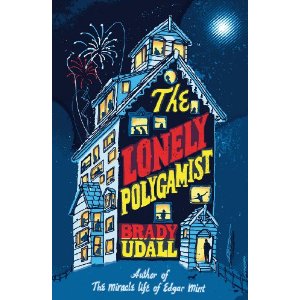An article in the Guardian newspaper made me think about what books I’ve recommended, and given as presents to friends over the years.
I’ve read several of the titles mentioned, and one of them Stoner is a favourite of mine. It was recommended to me by an American friend three years ago, so I borrowed it from the library and absolutely loved it. Written by John Williams and published in 1965, it was poorly received at the time but has since been reappraised and is now lauded for its depiction of human truths. It’s currently being adapted into a film, and I hope that they do a good job.

Some books take you by surprise, and one of them is a novel that I would never imagine as being to my taste owing to its subject matter. Although I’m spiritual I’m not religious so a novel about the relationships in a Mormon family wouldn’t have been my first choice. I read several favourable reviews of it in 2010, so gave it a chance—and was mightily impressed! The Lonely Polygamist by Brady Udall is a memorable tale of relationships within a family, being humorous and tragic. It’s excellent at depicting the loneliness of the human soul and how we throw ourselves into liaisons for temporary comfort. I gave four copies of it as Christmas presents last year, and am keen to hear what my friends think of it.

Lastly, I’d say that any collection of short stories by Guy de Maupassant is worthy of your time. I think he’s still the best short story writer ever, and he packs more about the human condition into a few pages than some writers do in a whole novel. I like his novels, but the shorter form is where he excels. I’ve given many copies of this Penguin collection Selected Short Stories to friends and lovers over the year. They’re good stories to read out loud in bed at night!

Sometimes I’ve given books to friends not just because I enjoyed them, but to help them through a difficult period in their lives.
One of these is Margaret Craven’s I Heard The Owl Call My Name, which tells the story of the last days of a terminally ill young priest sent to a remote settlement to tend the native population. He’s unaware of his limited lifespan, which has been kept from him by his bishop. He learns much about life and love before dying. That sounds depressing, but the short novel is a life-affirming read.

Another is a novel called The Maytrees, by Annie Dillard. This is a tale about the mysteries of marriage, as well as the nature of forgiveness. I gave it to several friends whose long-term relationships finished unexpectedly, leaving them to face life alone. The story is a wise reflection on who our soulmates are, and how we sometimes need to maintain a certain distance to appreciate the value of the closeness we crave.

Books can be many things to us, including thrilling, inspirational, educational and amusing. But they’re also a source of great comfort.
What books do you share?
Remember: one day readers will be passing our stories on…












